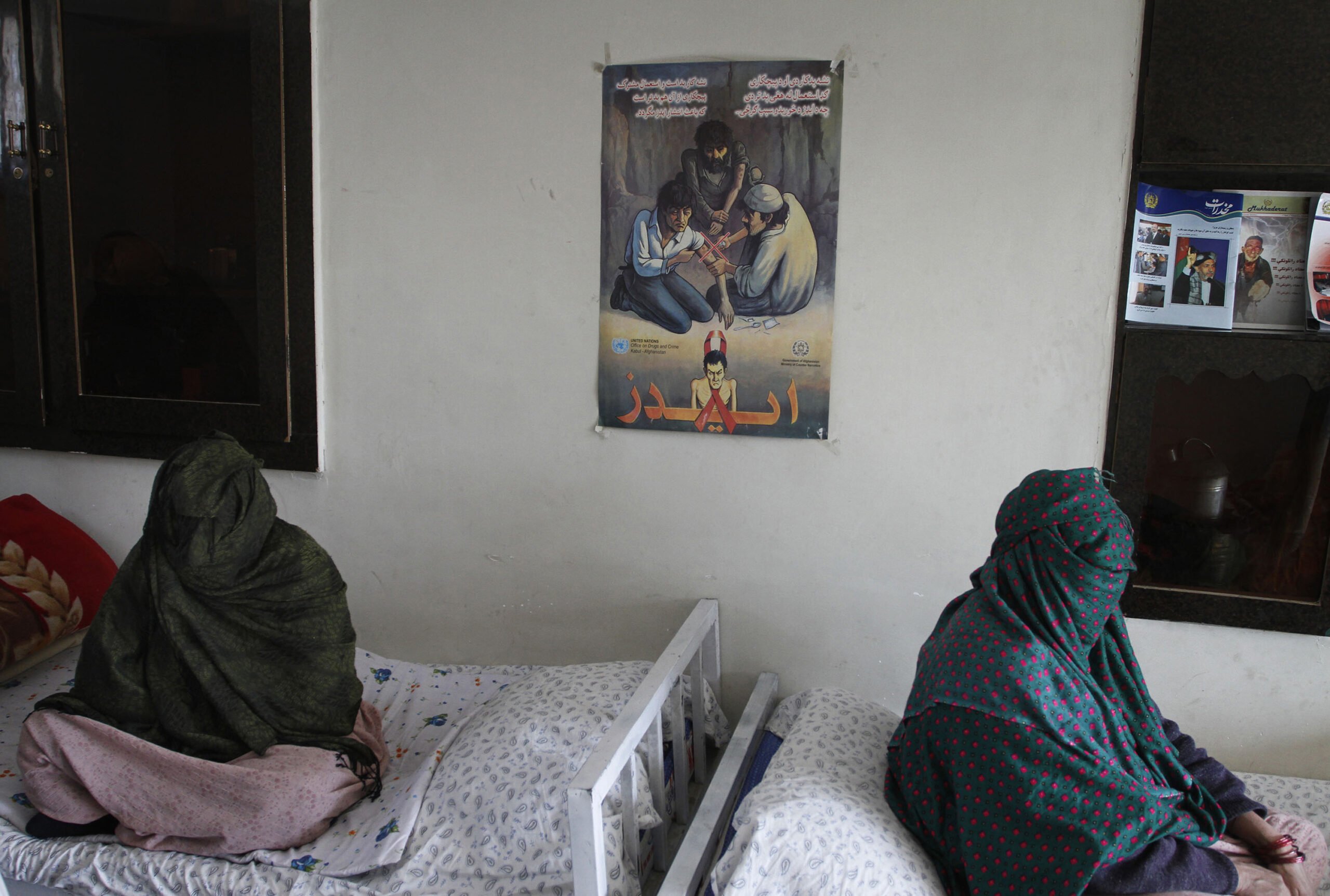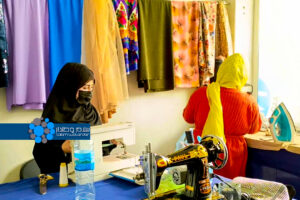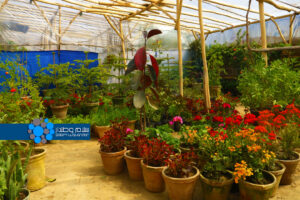KABUL (SW) – At least fourteen drug addicted women undergoing treatment at a rehab center in Kabul revealed that they became addicted to drugs due to the influence of men or by being placed in situations where men were the cause.
In a 150-bed specialized addiction recovery center for women and children in the 12th district of Kabul city, women are assisted in completing their recovery process and returning to society as healthy individuals.
Among the 14 women interviewed in this report, six were made addicted by their husbands, four by their fathers, and four others became addicted due to separation from their children, divorce, or living with friends who were addicted to drugs.
These women have completed the first 15 days of their 45-day addiction recovery process, enduring nervous shocks, nausea, and seizures. The first 15 days were particularly challenging, marked by physical weakness and difficulty in maintaining concentration in their speech.
Breshna, who is on the verge of turning 20 years old, and has recently gotten married, says that, in order to preserve her married life, she has decided to break free from the chains of drug addiction. She and three of her sisters got addicted to crystal meth because of her father who was an addict.
“Ever since I got married, I have made the decision to quit. I am fully committed to it because if I do not quit, I will lose everything, I quit it for the sake of my husband,” she said.
Among women addicted to drugs, many of them have fallen into this path due to their husbands’ addiction to drugs.
Mahgul, one of these women, says that because her husband could not afford the treatment for her illness, he gave Mahgul the drugs to ease her pain, gradually leading her into drug addiction.
Mahgul said: “I did not know he was addicted before we got married. He had gone to Iran, where he was using poppy. When he came back, he got a job in a mine. I started experiencing seizure fever. I became severely ill. Again, he gave me poppy, and my pain eased. Whenever I got sick, I used more.”
Another woman, Sabera, at the 150-bed rehabilitation center in Kabul city, says that after she wanted to separate from her husband due to his addiction to drugs and his unwillingness to quit, he intentionally got her addicted to drugs as well to prevent her from leaving.
“My husband had been using for nearly ten years. My father forced him to leave me, and broke his hand. After that, he found a sense of revenge. I have got the kidney disease too. One night, the pain was unbearable, and he did not have even 50 afghanis to take me to doctor that night, so he made me use the drug and said take them until you feel better.”
Many of the women undergoing addiction treatment at the rehab center are mothers, which makes them determined to resist the urge for substances so they can be good mothers for their children.
Nasira, a resident of Kabul undergoing addiction treatment at this center with her two children, says that in order to better care for her children, she decided to leave behind the desire for drug addiction.
The onset of drug addiction has various reasons, and among them, some women have turned to drug use to cope with the separation from their children.
Halima, a mother who has been separated from her husband and distanced from her two children, says that she has been forced to resort to drugs to endure this separation.
“My husband was addicted and took away my children from me. He went to Iran, leaving me alone with no one. Even my brother went to Iran. I was left very lonely. My husband abandoned me, but I became addicted for the sake of my children. I searched a lot to find them, but could not find them. I ended up at my mother’s house,” said 27 years old Halima.

Some women’s rights activists say that women’s addiction to drugs, caused by men, is another form of violence against women. They argue that social restrictions also cause to more women leaning towards drug use, as they seek to alleviate the pain of their social alienation.
Humaira Farhangyar, a women’s rights activist, says: “It is very unfortunate that women are forced into addiction, and this is a form of violence too. The existing restrictions are a dangerous warning because women and girls turn to drugs for mental peace, like taking different tablets or even more dangerous substances like crystal meth.”
Psychologists, however, say that drug addiction has a close relationship with the emergence of mental problems, and the disorders resulting from drug addiction have detrimental effects on the life of the drug user.
Hebatullah Ebrahimkhil, a psychologist, says that women addicted to drugs must be supported without judgment so they can quit drug use. “Women with addiction should not be judged because they are dealing with an illness, with a disorder, that they cannot cure themselves. We should educate them about addiction,” he added.
Simultaneously, Zia Nikzad, a sociologist, says that considering the role women play in families and society, women’s addiction to drugs can lead a generation of drug addicts into society.
“Unfortunately, drug addiction is more prevalent among men in the country, but a man’s addiction also involves the woman, and if a woman becomes addicted in a household, it has an extremely significant impact on a society. An addicted woman who is a mother or a sister can lead to a chain effect, causing a large number of individuals to become addicted, and results in the destruction of several generations,” he added.
Although, Bismillah Habib, the deputy spokesperson for the Ministry of Interior Affairs of the de-facto government, has not provided precise statistics on the number of women addicted to drug use. However, he says that last year, 1,749 addicted women were collected from across Afghanistan and sent to specialized addiction treatment centers, of which 1,110 were discharged after completing the addiction treatment process.
He adds, “In one year, a total of 40,000 addicts from various parts of the country have been collected by the Anti-Narcotics Police and referred to health centers, among whom there are also children under the age and women. In 1402 [solar year], 1,749 women and 1,700 individuals under the age addicted to drugs were collected from various parts of the country and referred to health centers for treatment, among them, 1,110 women and 844 individuals under the age were discharged from these centers after revalidation.”
Sharafat Zaman, the spokesperson for the Ministry of Public Health of the Islamic Emirate, says that currently, more than 2,500 women addicted to drug use are undergoing treatment in specialized addiction treatment centers. “Out of more than 60,000 treated over the past two years, currently more than 10,000 addicts are under treatment, of which over 2,500 are women.”
It is worth mentioning that the lack of a supportive mechanism after addiction treatment has led many individuals who have completed addiction rehabilitation programs to relapse into drug use again. This concern also worries the women in the 150-bed specialized addiction treatment center in the 12th district of Kabul. These women demand the Islamic Emirate to provide them with job opportunities after their addiction treatment period.






